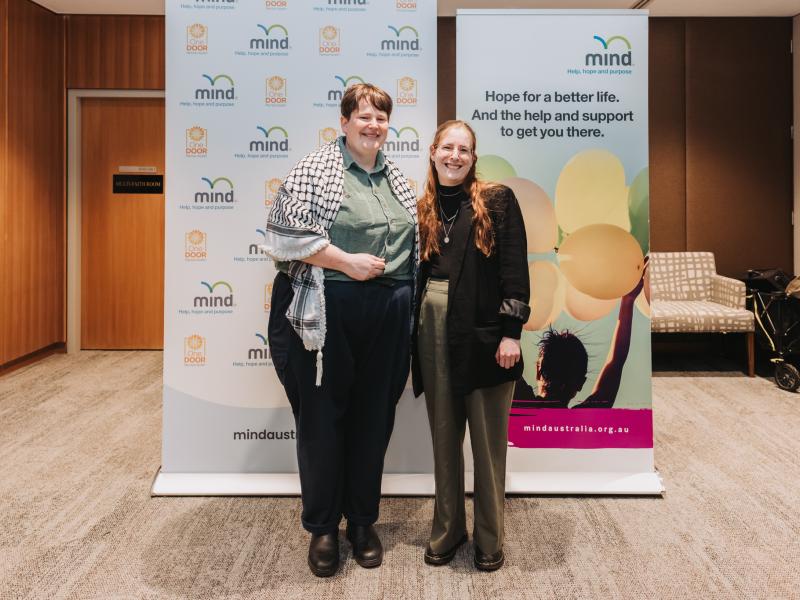2024 Stratford Scholarship recipient Mush McLoughlan’s ‘deathsong witnessing event’ attempts to move away from fear-based to love-based responses to suicide.
Watch Mush’s introduction to her Deathsongs project here
Mush (they/them) presented the project their Stratford Scholarship made possible, to a receptive audience at the 2025 Stratford Lecture in Sydney in May.
Watch Mush’s Deathsong witnessing event here
Mush is a self-described psych survivor who has been harmed by traditional responses to suicidality, including coercive hospitalisation. They are interested in building survivor led and controlled alternatives to suicide prevention, entirely independent of the existing mental health system.
Mush seeks to depathologise suicide and puts ‘suicide’ and ‘suicidality’ in quotation marks, not as an invalidation of these experiences but because of the history of medicalisation, pathologisation and criminalisation these words carry.
“The word ‘suicide’ is a pathologised and medicalised term telling us there is something wrong with us, that we are ill and broken and need to be fixed,” Mush said. “It depoliticises a sociopolitical issue – placing the issue inside of ourselves, rather than in the violence and oppression around us.”
“The word is inadequate at describing the pain, comfort, complexity, meaning, and wisdom of so-called ‘suicidality’. As someone who lives with ‘suicide’, I know in my bones that the meaning is far deeper than words can convey. I know it is a deeply meaningful experience that tells us a lot about ourselves and the world.”
Mush prefers to use the words ‘deathsong’ and ‘deathsinger’ to describe their relationship with death. The terms were coined by a fellow traveller, Mia the deathsong doula. Mush asks:
“What if I told you that not everyone wants their ‘suicidality’ to go away? That it’s possible for our deathsongs to provide great comfort, to guide us through the world and even make life liveable? What if we could respond to ‘suicide’ with love and connection instead of risk assessments and coercion?”
Mush hopes the video will inspire others to “think about your own ways of responding to deathsongs with creativity, moving away from fear based responses to love based responses.”
“After Deathsong Day, I didn't not want to die. I still sing a deathsong. I still live with a desire to die. But after Deathsong Day… my deathsong felt like a warm hug around my shoulders…I hope it lets consumers, survivors and lived experience workers think about how we can do things differently.”
Read about the recipients of the 2025 Stratford Scholarship here
